Solar energy is a clean, abundant, and renewable source of power that can be harnessed for various purposes. One of the most widespread applications of solar energy is water heating, and solar water heater kits have become increasingly popular in recent years. These kits offer an affordable and eco-friendly solution to heating water for residential and commercial purposes. This article provides an in-depth summary of solar water heater kits, highlighting their benefits, components, installation process, and key considerations. 1. Benefits of Solar Water Heater Kits: 1.1 Environmental Benefits: – Reduced carbon footprint: Solar water heater kits produce clean energy, reducing reliance on fossil fuels and thus lowering greenhouse gas emissions. – Renewable and sustainable: Solar energy is an abundant resource, ensuring long-term energy security while reducing dependence on non-renewable sources. 1.2 Financial Benefits: – Lower energy bills: Solar water heater kits utilize free energy from the sun, resulting in significant cost savings on traditional fuel or electricity bills. – Long-term investment: Although initial installation costs may be higher, solar water heater kits offer a return on investment over time through reduced energy expenditures. 1.3 Maintenance Benefits: – Low maintenance requirements: Solar water heater kits are typically designed to be durable and require minimal upkeep, resulting in lower maintenance costs compared to traditional water heating systems. 2. Components of Solar Water Heater Kits: 2.1 Solar Collectors: – Also known as solar panels, these are the primary components of a solar water heating system. They absorb sunlight and convert it into usable heat energy.
solar water
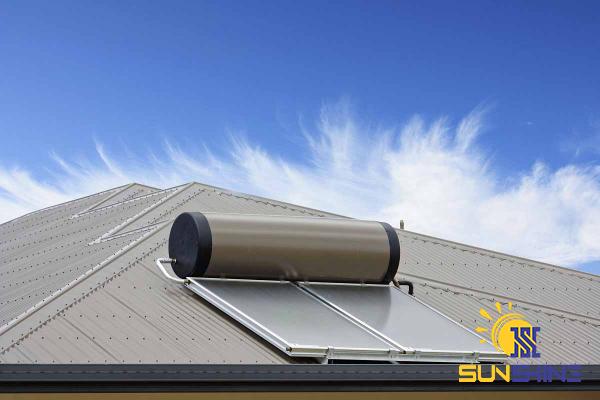 – Different types of solar collectors include flat plate collectors, evacuated tube collectors, and concentrating collectors, each with unique advantages and efficiency levels. 2.2 Heat Transfer System: – The heat transfer system circulates a heat-carrying fluid, often a mixture of water and antifreeze, from the solar collectors to the hot water storage tank. – Pumps, valves, and pipes are key components of the heat transfer system, ensuring efficient transport of heated fluid to the storage tank. 2.3 Solar Water Storage Tank: – The storage tank holds the heated water until it is ready for use. It is insulated to minimize heat loss and ensure hot water availability even during non-sunlight hours. – There are various types of storage tanks, including conventional tanks with a built-in heat exchanger, single-tank direct systems, and two-tank indirect systems. 2.4 Backup Heating System (Optional): – To ensure hot water availability during times of insufficient sunlight, some solar water heater kits may include a backup heating system such as an electric element or a gas burner. – The backup system automatically kicks in when the temperature of the stored water falls below a certain threshold. 3. Installation Process: 3.1 Site Assessment: – A thorough site assessment is essential to determine the most suitable solar water heater kit based on factors such as location, climate, shading, and hot water demand. – Factors like roof orientation, slope, and structural suitability are also considered during the site assessment. 3.2 Mounting and Installation: – Solar collectors are typically installed on rooftops or ground-mounted frames, angled to optimize sun exposure. – Proper orientation, tilt, and spacing between collectors are crucial to ensure optimal energy capture.
– Different types of solar collectors include flat plate collectors, evacuated tube collectors, and concentrating collectors, each with unique advantages and efficiency levels. 2.2 Heat Transfer System: – The heat transfer system circulates a heat-carrying fluid, often a mixture of water and antifreeze, from the solar collectors to the hot water storage tank. – Pumps, valves, and pipes are key components of the heat transfer system, ensuring efficient transport of heated fluid to the storage tank. 2.3 Solar Water Storage Tank: – The storage tank holds the heated water until it is ready for use. It is insulated to minimize heat loss and ensure hot water availability even during non-sunlight hours. – There are various types of storage tanks, including conventional tanks with a built-in heat exchanger, single-tank direct systems, and two-tank indirect systems. 2.4 Backup Heating System (Optional): – To ensure hot water availability during times of insufficient sunlight, some solar water heater kits may include a backup heating system such as an electric element or a gas burner. – The backup system automatically kicks in when the temperature of the stored water falls below a certain threshold. 3. Installation Process: 3.1 Site Assessment: – A thorough site assessment is essential to determine the most suitable solar water heater kit based on factors such as location, climate, shading, and hot water demand. – Factors like roof orientation, slope, and structural suitability are also considered during the site assessment. 3.2 Mounting and Installation: – Solar collectors are typically installed on rooftops or ground-mounted frames, angled to optimize sun exposure. – Proper orientation, tilt, and spacing between collectors are crucial to ensure optimal energy capture.
Specifications of solar water
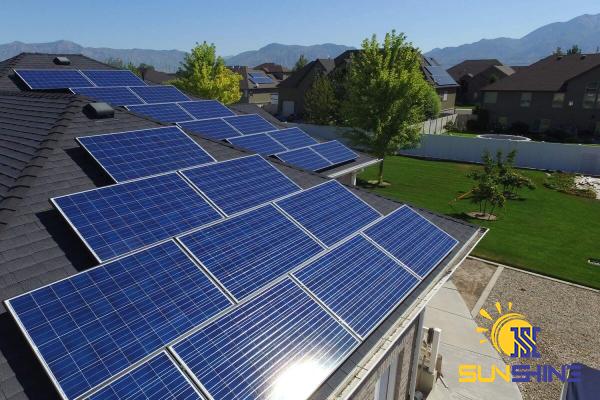 – The heat transfer system, including pipes, pumps, and valves, is installed to connect the solar collectors and the water storage tank. 3.3 Plumbing and Electrical Connections: – Plumbing connections are made to integrate the solar water heater kit with existing piping systems, linking the storage tank to the building’s hot water supply. – Electrical connections, if required, are made to power the pumps, controls, and backup heating systems. 3.4 Safety Measures and Compliance: – Compliance with building codes, regulations, and safety standards is a critical aspect of solar water heater kit installation. – Proper insulation and protective measures to prevent freezing and overheating should be in place. 4. Key Considerations: 4.1 System Size and Capacity: – Determining the appropriate size and capacity of a solar water heater kit depends on factors such as household size, hot water demand, and available space. – It is important to choose a system that meets the specific needs of the user while taking into account the potential for future growth. 4.2 Climate and Sunlight Exposure: – Solar water heater performance is influenced by factors such as climate, weather patterns, and the amount of available sunlight in a given region. – The efficiency of the solar collectors should be matched to the available sunlight exposure to maximize energy capture.
– The heat transfer system, including pipes, pumps, and valves, is installed to connect the solar collectors and the water storage tank. 3.3 Plumbing and Electrical Connections: – Plumbing connections are made to integrate the solar water heater kit with existing piping systems, linking the storage tank to the building’s hot water supply. – Electrical connections, if required, are made to power the pumps, controls, and backup heating systems. 3.4 Safety Measures and Compliance: – Compliance with building codes, regulations, and safety standards is a critical aspect of solar water heater kit installation. – Proper insulation and protective measures to prevent freezing and overheating should be in place. 4. Key Considerations: 4.1 System Size and Capacity: – Determining the appropriate size and capacity of a solar water heater kit depends on factors such as household size, hot water demand, and available space. – It is important to choose a system that meets the specific needs of the user while taking into account the potential for future growth. 4.2 Climate and Sunlight Exposure: – Solar water heater performance is influenced by factors such as climate, weather patterns, and the amount of available sunlight in a given region. – The efficiency of the solar collectors should be matched to the available sunlight exposure to maximize energy capture.
buy solar water
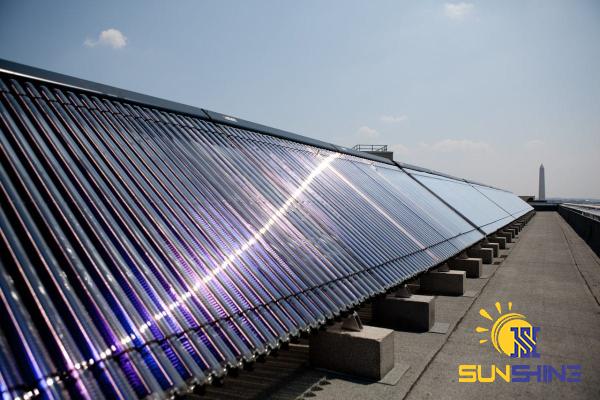 4.3 Orientation and Tilt: – The orientation and tilt of the solar collectors impact the amount of sunlight they receive throughout the day. – Adjusting the tilt angle seasonally can optimize energy capture and improve overall system efficiency. 4.4 Cost and Return on Investment: – While solar water heater kits may have higher upfront costs compared to traditional heating systems, the long-term energy savings often outweigh the initial investment. – Considering the payback period, available incentives, and financing options can help evaluate the cost-effectiveness of solar water heating systems. Conclusion: Solar water heater kits offer a sustainable and cost-effective alternative to traditional water heating methods. Harnessing the power of the sun, these kits reduce reliance on fossil fuels, lower energy bills, and contribute to a greener future. Understanding the components, installation process, and key considerations can help individuals and businesses make informed decisions when opting for solar water heating systems. With their environmental and financial benefits, solar water heater kits are a wise choice for those seeking energy-efficient and eco-friendly water heating solutions.
4.3 Orientation and Tilt: – The orientation and tilt of the solar collectors impact the amount of sunlight they receive throughout the day. – Adjusting the tilt angle seasonally can optimize energy capture and improve overall system efficiency. 4.4 Cost and Return on Investment: – While solar water heater kits may have higher upfront costs compared to traditional heating systems, the long-term energy savings often outweigh the initial investment. – Considering the payback period, available incentives, and financing options can help evaluate the cost-effectiveness of solar water heating systems. Conclusion: Solar water heater kits offer a sustainable and cost-effective alternative to traditional water heating methods. Harnessing the power of the sun, these kits reduce reliance on fossil fuels, lower energy bills, and contribute to a greener future. Understanding the components, installation process, and key considerations can help individuals and businesses make informed decisions when opting for solar water heating systems. With their environmental and financial benefits, solar water heater kits are a wise choice for those seeking energy-efficient and eco-friendly water heating solutions.
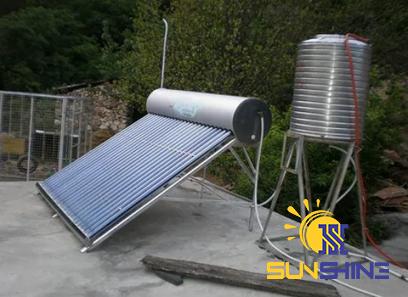
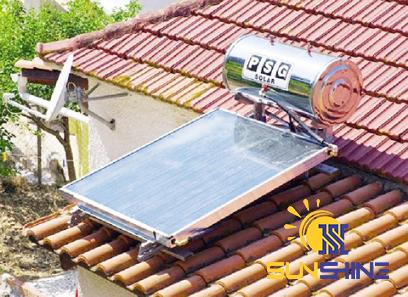
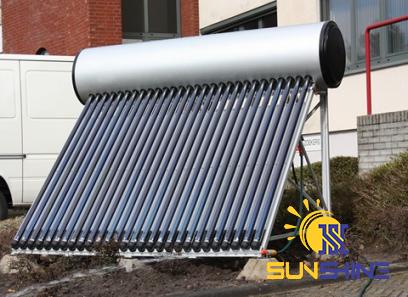
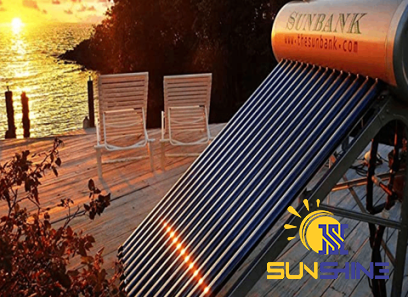
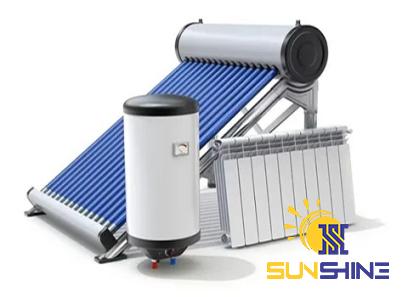
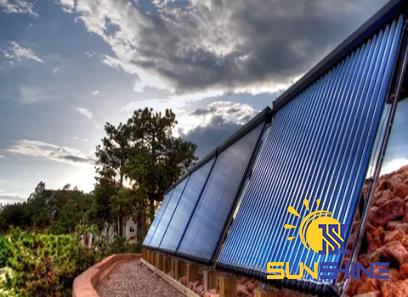
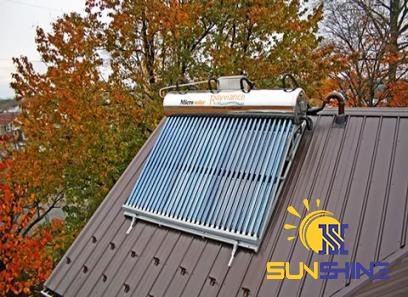
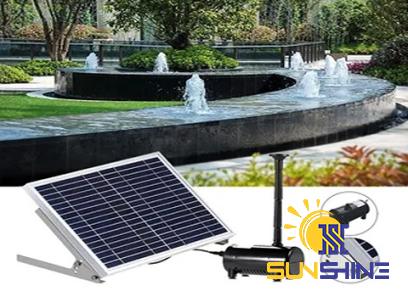
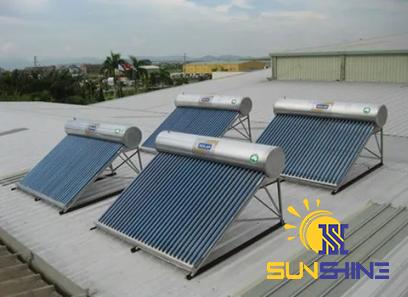
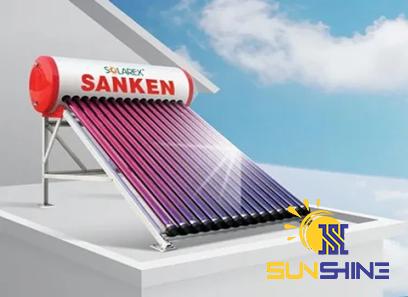
Your comment submitted.